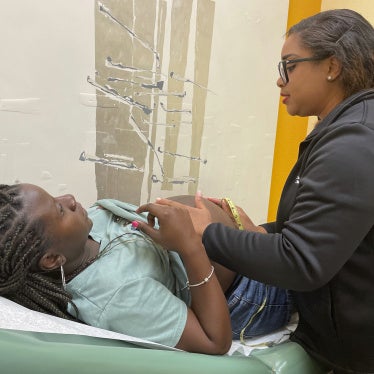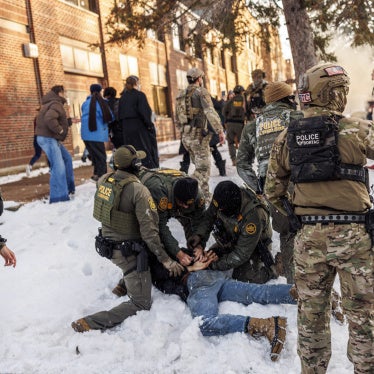Approximately one in five male inmates in the United States has faced forced or pressured sexual contact in custody, according to studies on the subject by researchers such as Cindy Struckman-Johnson at the University of South Dakota. One in 10 has been raped. For women, whose abusers are often corrections officers, the rates of sexual assault are as high as one in four in some facilities.
Rodney was 16 and small for his age when he committed a minor crime, setting a Dumpster on fire in an alley. Charged with arson, he was sentenced to an adult prison, where he was repeatedly raped and sexually assaulted.
Officials ignored his written pleas for help. Prison staff brushed off his mother's attempts to protect her child. Unable to endure a life of constant torture, Rodney hanged himself in January 1996 – 75 days after entering prison.
Two months ago, in July, Congress passed a law that could help prevent others from facing sexual abuse behind bars. The Prison Rape Elimination Act of 2003 won unanimous approval through courageous bipartisan efforts in both the House and Senate. President Bush signed it into law on Sept. 4.
This law is desperately needed.
Approximately one in five male inmates in the United States has faced forced or pressured sexual contact in custody, according to studies on the subject by researchers such as Cindy Struckman-Johnson at the University of South Dakota. One in 10 has been raped. For women, whose abusers are often corrections officers, the rates of sexual assault are as high as one in four in some facilities.
Like Rodney, many victims of rape are young, nonviolent offenders who are inexperienced in the ways of prison life.
Like Rodney, many victims have found that corrections officials ignore pleas for help or even retaliate against inmates who file complaints.
And like Rodney, many victims have been devastated by the physical and psychological damage they have suffered.
Victims of rape behind bars have been left beaten, bloodied and even dead. They have contracted sexually transmissible diseases such as HIV/AIDS and hepatitis A and B. And they have suffered from crippling depression, substance abuse and post-traumatic stress disorder.
No one should have to endure sexual violence, especially not in correctional facilities where public officials have near-total control over the lives of those they are charged with protecting.
A broad and diverse coalition of civil and human-rights organizations, religious groups and criminal-justice experts support the Prison Rape Elimination Act of 2003 because it is a responsible effort to begin addressing one of the most widely ignored and trivialized abuses of human rights in this country.
The act calls for gathering national statistics about the problem, developing standards for states to use to address prison rape, providing grants to support state and local programs to prevent and punish prison rape, and creating a review panel to hold states accountable for making progress.
Implemented conscientiously, the Prison Rape Elimination Act will help move us toward a safer, more humane era in American corrections. The act's reach should extend to all detention facilities that confine adults and juveniles, including those that house immigration detainees.
The commission that creates the new standards and the review panel that assesses state compliance must be staffed with knowledgeable, experienced reformers. And all those who commit rape must be held accountable for their actions, especially correctional staff who grossly abuse their authority by sexually abusing inmates.
Prison rape will not be wiped out with legislation alone. In addition to effective laws, we need mental health services for survivors of abuse, lawsuits aimed at reform and greater compassion on the part of the public.
We need to recognize that none of the more than 2 million people now held in U.S. jails and prisons was sentenced to be raped.
Addressing this problem will benefit all of us. Sexual assault behind bars spreads disease, promotes cycles of violence, undermines the legitimacy of our justice system, violates basic rights and destroys lives.
Rodney deserved better than that. We as a society deserve better, too.
_______
**)Stemple is executive director of Stop Prisoner Rape. Patten is U.S. advocacy director of Human Rights Watch. Jealous is director of the U.S. domestic human rights program of Amnesty International USA.







